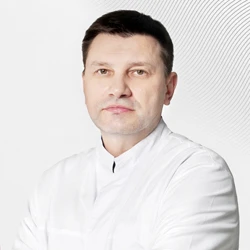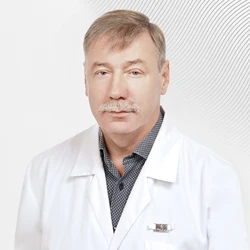Such a common disease as a hernia, even with the abundance of information and medical care opportunities, takes many people by surprise these days: they have little idea what the danger of a hernia is and how to treat it. The head of the Surgical Clinic, Vladimir Kan, talks about how a hernia is formed, whether it is worth peacefully coexisting with it and how to act if a hernia has been infringed.
Hernia occurs at any age, more often in men than in women. Depending on the location, the hernia can be internal (diaphragmatic) or external — inguinal, femoral, umbilical, white line of the abdomen. In addition, there are postoperative hernias that form in the suture area after surgery on the abdominal organs. In most cases, not one but several factors contribute to the development of a hernia, including the patient's lifestyle, and the risk of a hernia increases with increasing age and weight.
Thus, infants are more likely to develop an umbilical hernia due to strained crying and crying, and with age, the likelihood of a hernia in the weakest part of the anterior abdominal wall increases - in the inguinal canal. Men are more likely to have an inguinal hernia in the inguinal ligament, as well as a hernia of the white line of the abdomen; overweight women and pregnant women are more likely to have a hernia in the upper thigh below the inguinal ligament, and women over 40 are more likely to have a hernia in the umbilical ring.
The hernia does not reverse development, if it appears, it will progress. Up to a certain point, the hernia can be repaired: the patient can manually adjust the protruding "hernial sac" back into the abdominal cavity. The "owners" of removable hernias very often question the need for surgical intervention against the background of complete health or, at least, satisfactory well-being, they have been wearing bandages for years, sometimes unaware that this "peaceful coexistence" may one day be complicated by hernia injury, in which there is a serious threat to the patient's life.
Hernia infringement is a sudden compression of the hernial contents in the hernial gate, which usually occurs with significant abdominal tension (lifting weights, severe coughing). The pinched loop of the intestine is compressed by a muscular ring, the pain causes a spasm, which also causes pain. Attempts to repair the hernia end in failure: the hernial protrusion is enlarged, compacted, and sharply painful. The prolapsed part of the intestine stops being supplied with blood and tissue necrosis begins, which can lead to peritonitis.
It is important to remember: if you suspect a hernia injury, you should not self-medicate, you should urgently consult a doctor. If the hernia injury lasts about a day, the probability of death increases to 25%. Therefore, if an injury is suspected, an ambulance should be called — if the diagnosis is confirmed, hospitalization and emergency surgery are necessary.
According to statistics, every fifth hernia is affected. Therefore, not only every fifth, but all carriers of hernias, both external and internal, are advised by doctors of the EMC surgical clinic to discuss timely planned surgical intervention with a doctor immediately after diagnosis BEFORE irreversible changes occur in the affected organs. Until recently, the main method of surgical treatment of hernias was the so—called "tension" method - herniation with reinforcement of the hernial canal by stitched muscles, after which the recurrence of hernias reached 25-30%. Modern methods of hernial gate plastic surgery with mesh implants used in the EMC Surgical Clinic reliably prevent hernia recurrence, in most cases the operation is performed laparoscopically and allows you to forget about the once "faithful companion" forever.
Was this information helpful?
Questions and answers
Ask a Question






.webp)







.webp)

.webp)
.webp)





.webp)


